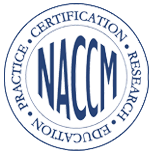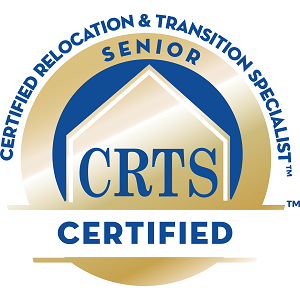The Different Levels of Senior Care Management
Senior care is never a one-size-fits-all approach. Quality senior care services can be broken down into various levels, all corresponding to the different needs and abilities of the patient. When looking at the various levels of senior care, it can be helpful to understand how each level supports seniors at different stages of life.
Based on your loved one’s medical conditions and personal preferences, the level of care they need will differ, highlighting the importance of selecting the appropriate level of care to best support their needs allowing them to age with dignity.
Levels of Senior Care Management
Each level of senior care management is designed to provide a range of services and support. The intensity and integration of these services vary based on a person’s diagnosed medical conditions and overall health.
You might decide that one type of care works best for your loved one now and have them transferred to a different level of care as their needs change. At Reflections Management and Care, we are happy to help families assess their aged loved one’s current situation and determine which care is best for them.
Home Care
Home care services provide in-home support for seniors currently living alone or with family. Home care helps seniors continue to live with their loved ones rather than in a nursing home. Usually, seniors requiring home care services have chronic conditions like Alzheimer’s or Parkinson’s disease.
Home care can include support from a registered nurse and a home health aide, who will assist with daily activities like personal grooming, feeding, light housework, and errands. Additional supportive services include IV management, medication management, and transporting seniors to and from their doctor’s appointments.
Independent Living
Independent aged care helps seniors maintain autonomy while still providing assistance. This is the most hands-off level of care, as the patients are generally still highly mobile and capable of making decisions in their daily lives.
Independent living offers easy access to supplementary services, such as senior mental health counseling. Seniors living in independent communities can still care for themselves, but they benefit from specialized services.
Assisted Living
Assisted living delivers skilled care from senior health professionals, including doctors and registered nurses. In an assisted living community, seniors usually live in their own apartments or rooms and share common areas with other residents.
Services in assisted living facilities are designed to make life easier for aging individuals; these include housekeeping, meal prep or dining areas, and medication management. On-site security and 24-hour access to assistance can provide some peace of mind to residents and their families.
The exact level of care offered in assisted living facilities varies. Many communities offer different levels of care to accommodate a broader range of patients, and costs increase as the level of care becomes more intensive.
Residential Care Homes
In residential care homes, seniors tend to live in a private room or with a single roommate. These are smaller than assisted living facilities and offer more hands-on assistance. However, there is no 24-hour nurse-provided care available, so these homes are not ideal for patients with chronic conditions or those who need around-the-clock medical supervision.
Residential care homes strike a balance between assisted living and nursing homes. Residents here need more hands-on care than assisted living communities provide, but they do not need the more intensive care of a nursing home.
Nursing Homes
Nursing homes offer extensive services for seniors with various health conditions. Residents in nursing homes often have permanent, progressive conditions that require ongoing management and assistance. Due to the number of seniors living in nursing homes who need constant care, medical services from registered nurses are available 24/7.
Personal services at nursing homes strive to improve a person’s quality of life. Activities, field trips, and special events make life in the nursing home less tedious and isolating. Regardless, families are still encouraged to visit often and take their loved ones on short trips away from the nursing home if possible.
Memory Care
Memory care is a specialized residential facility for seniors with dementia and Alzheimer’s. People with these conditions are often easily triggered by things in an unstructured environment. Families may struggle to help them stay calm and maintain independence when they are prone to wandering and becoming disoriented.
Memory care facilities are equipped with the appropriate safety and security measures to keep seniors safe. You may find that many assisted living facilities or residential care homes have memory care communities for seniors living with dementia.
Enclosed spaces and alarmed doors help keep seniors safe, even if they are prone to wandering. At the same time, facilities are arranged so seniors can move freely on the premises without jeopardizing their safety.
According to the National Investment Center for Seniors Housing & Care, memory care units doubled in the last decade, which is the fastest-growing senior housing sector.
Staff in memory care facilities offer daily living help and therapeutic interventions, just as they do in assisted living and nursing homes. The difference is that the staff here are specially trained to work with many of the complications and challenges patients with Alzheimer’s disease and dementia experience.
Choosing the Right Option for Your Loved One
Deciding on the appropriate level of senior care for your loved one takes time. It’s essential to consider the different elements that will impact the final decision, such as finances, medical needs, and the patient’s personal preferences. For example, not every senior is eager to enter assisted living, so their family may opt for in-home services before making that transition.
In some cases, seniors with progressive diseases are able to remain at home with the proper assistance. Care managers can make the transition to a nursing home easier for these seniors as their condition advances.
Think about what is best for your loved one currently. Long-term solutions decrease senior stress and offer a much-needed level of stability. So ideally, the level of care should support a person for at least one year before they need to move to another.
Starting the Process
Working with a senior care professional can help you determine the right level of care to best meet your loved one’s needs. Many people are happy to start with home care services, making life easier for family members and patients.
At Reflections Management and Care, we offer various home services that help seniors remain independent where they can and brings families peace of mind. We are also partners with Electronic Caregiver, a pocket-sized health device and wrist pendant that helps seniors get emergency aid whenever they need it.
Contact us today to arrange a consultation. We would be delighted to help you find the right level of care for your loved one.














